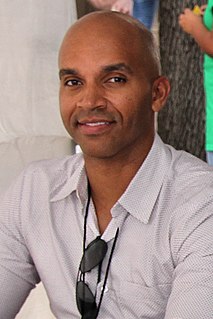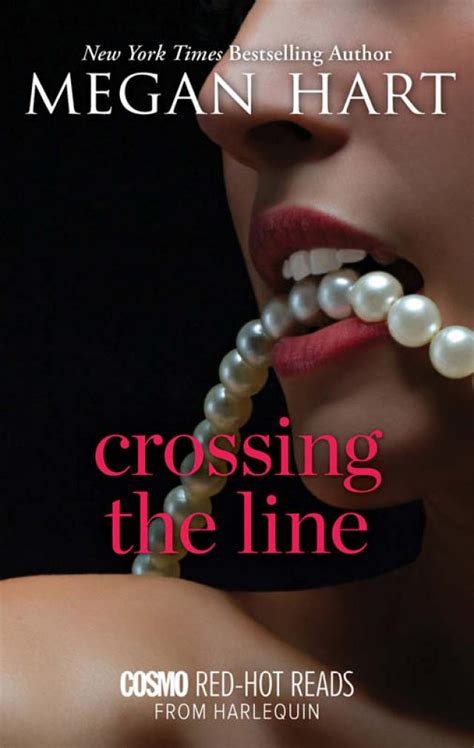A Quote by Elizabeth Kostova
The thing that most haunted me that day, however...was the fact that these things had - apparently - actually occurred...For all his attention to my historical education, my father had neglected to tell me this: history's terrible moments were real. I understand now, decades later, that he could never have told me. Only history itself can convince you of such a truth. And once you've seen that truth - really seen it - you can't look away.
Related Quotes
It felt as if we'd been to war together. Deep in a jungle, alone, I had relied on them, these strangers. They'd held me up in ways only people could. When it was over, an ending never felt like an ending, only an exhausted draw, we went our separate ways. Be we were bonded forever by the history of it, the simple fact they'd seen the raw side of me and me of them, a side no one, not even closest friends or family had ever seen before, or probably ever would.
Adults who loved and knew me, on many occasions sat me down and told me that I was black. As you could imagine, this had a profound impact on me and soon became my truth. Every friend I had was black; my girlfriends were black. I was seen as black, treated as black, and endured constant overt racism as a young black teenager.
When I look at American history and I look at what history means to me, I look at it as if it were a string of stories. And if it's told well enough and in a way that's charming and warm and with wit and humor, then it takes a bit of the edge off of it. You can still tell the truth, but if you tell it very sweetly and very warmly, it makes it go down a bit easier.
I have seen clouds part for the sun. I have seen rainbows. I have seen flowers in the morning, covered in dew, and I have seen sunsets so brilliant with fire they made me want to weep. And I have seen Dan smile at me, his lips still wet from my kiss, and if I had to choose which sight moved me the most I would say it was that one.
The idea of going to the movies made Hugo remember something Father had once told him about going to the movies when he was just a boy, when the movies were new. Hugo's father had stepped into a dark room, and on a white screen he had seen a rocket fly right into the eye of the man in the moon. Father said he had never experienced anything like it. It had been like seeing his dreams in the middle of the day.
You told me once, long ago, to look into a mirror and see your face. I refused to then. But now Mnimi has forced me to look at my own reflection. I’ve seen it through my eyes and I’ve seen it through yours. I wish to the gods that I could change what happened between us. If I could go back, I would never deny you. But I can’t. We both know that. Now I just want the chance to know you as I should have known you all those centuries ago. (Styxx)
I had convinced my father to let me pursue this career, and I passionately wanted it. And here was this conflict in me, and I hadn't shared it with my father. And it was excruciating to always have your guard up. Particularly because, being an actor, you're public and visible. I could be seen coming out of a gay bar. Who could have seen me?
[Eugene Smith] was always writing these diatribes about truth, and how he wanted to tell the truth, the truth, the truth. It was a real rebel position. It was kind of like a teenager's position: why can't things be like they should be? Why can't I do what I want? I latched on to that philosophy. One day I snapped, hey, you know, I know a story that no one's ever told, never seen, and I've lived it. It's my own story and my friends' story.
His gaze burned into mine, like he could see past my eyes into parts of me no one had ever seen, and I knew I was seeing the same in him. No one else had ever seen him so vulnerable before, like if I pushed him away, he might crumble into pieces that could never be put together again. Yet there was strength, too. He was strong beneath that fragile need, and I knew that I could never fall with him next to me. If I tripped, he would catch me. If I lost my balance, he would find it.
I fully agree with you about the significance and educational value of as well as history and philosophy of science. So many people today - and even professional - seem to me like someone who has seen thousands of trees but has never seen a forest. A knowledge of the historic and philosophical background gives that kind of independence from prejudices of his generation from which most scientists are suffering. This independence created by philosophical insight is - in my opinion - the mark of distinction between a mere artisan or specialist and a real seeker after truth.
I was in Korea. I've noticed all my life I see elderly people who have been close to death in an illness and they're absolutely cured and they say, now I know how to live my life. I've seen death. That happened to me when I was 19. It was a terrible, terrifying thing. And I live my life like those people decided to do when they were old. So, since I was 19, I've had the most fun possible every single day, even when I had a rough life. It was the army which taught me about life, and the theater which taught me how good it could be.


































